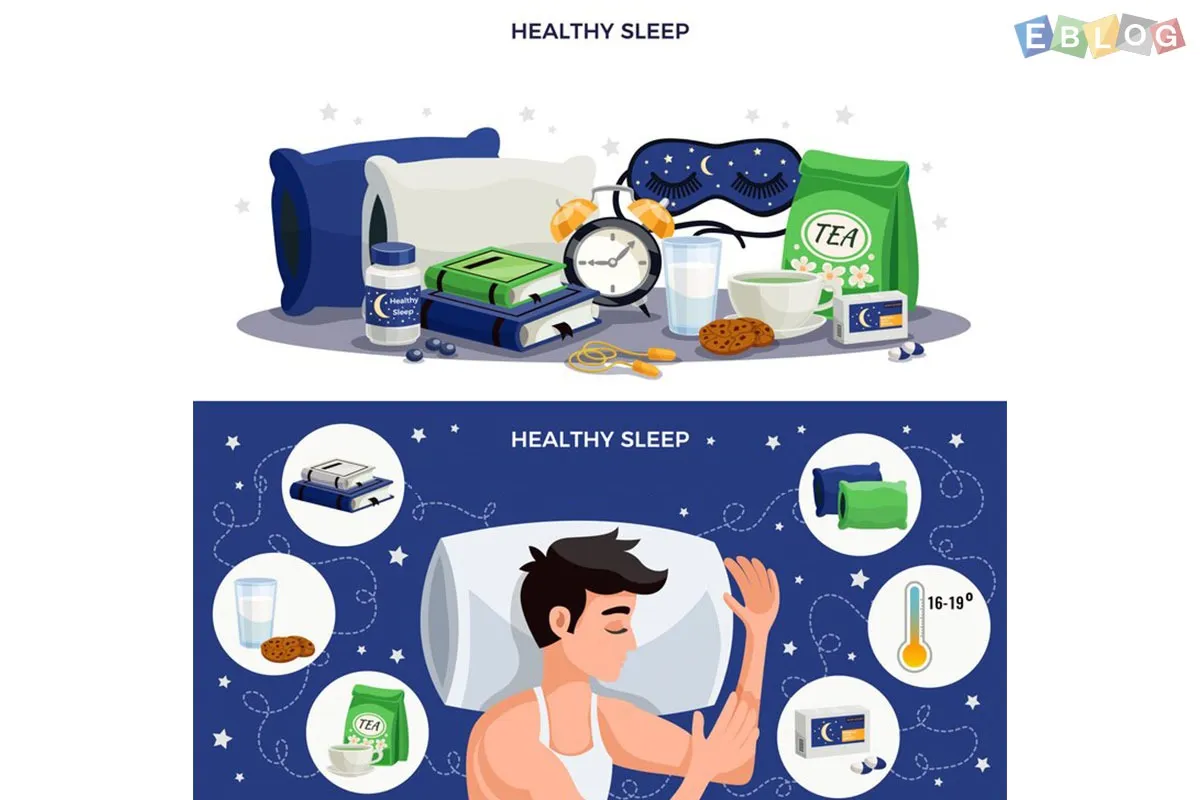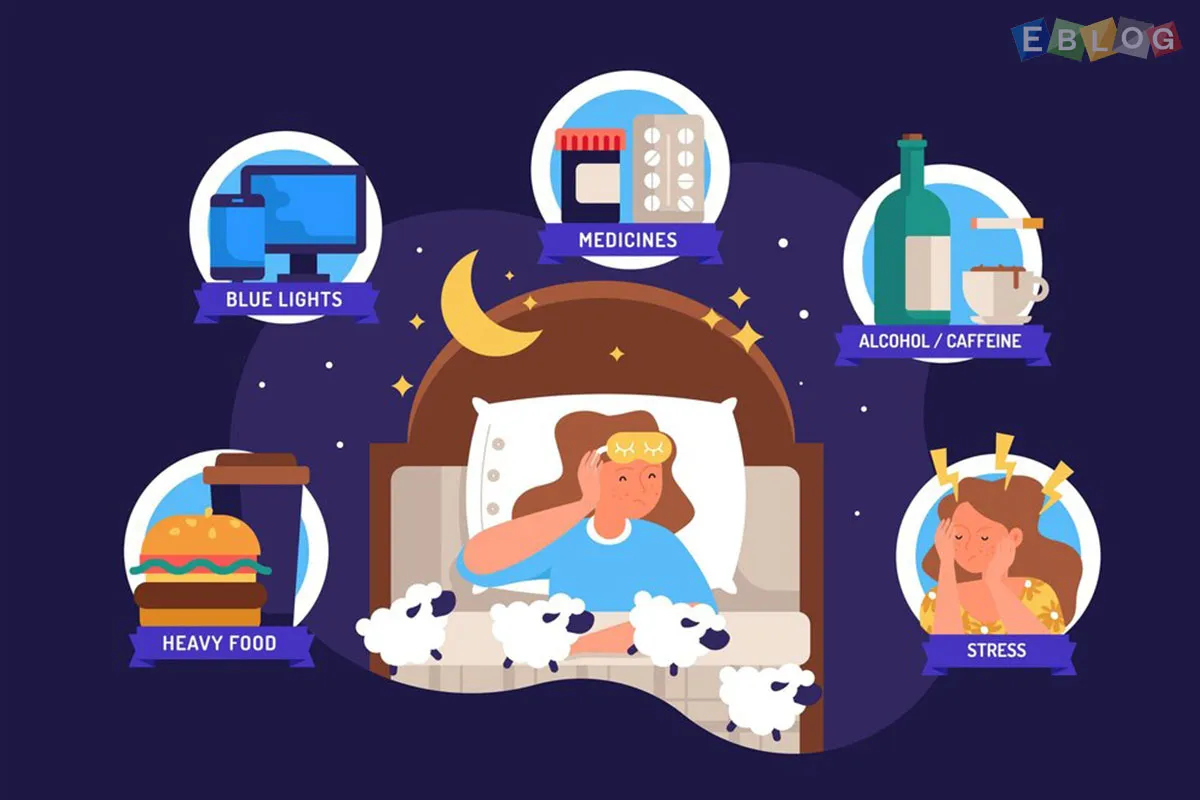
The Power of Sleep: How Quality Rest Can Transform Your Health
- 30 Dec, 2024
- Health
- 502 Views
- 0 Comments
We all know that sleep is important, but do we truly understand how vital quality rest is for our overall health? In today’s fast-paced world, it’s easy to overlook the importance of sleep, often sacrificing it for work, social activities, or late-night scrolling. However, sleep is just as crucial as diet and exercise when it comes to maintaining good health.
In this blog, we’ll explore how quality sleep can transform your physical, mental, and emotional well-being, and provide tips on prioritizing rest in your life.
1. Why Sleep Matters: The Science Behind It
Sleep isn’t just a time for our bodies to "rest"—it's a highly active process that plays a key role in maintaining our health. During deep sleep, our body repairs itself regenerates tissues, strengthens the immune system, and processes the information we’ve absorbed throughout the day. Sleep allows our brain to consolidate memories and create new neural connections, which is essential for learning and creativity.
There are several stages of sleep, each serving a distinct purpose. The most restorative stages are deep sleep (slow-wave sleep) and REM (Rapid Eye Movement) sleep. Deep sleep is when the body works on healing and rejuvenating, while REM sleep helps with memory processing, emotional regulation, and dreaming. Both stages are crucial for overall well-being.
2. The Physical Benefits of Quality Sleep
Sleep plays a major role in physical health. It influences everything from our heart health to our metabolism. Here's how:
a. Boosts Immunity: During sleep, your immune system becomes more efficient in fighting off illness. A lack of sleep can weaken your immune response, making you more susceptible to infections.
b. Improves Cardiovascular Health: Consistent, high-quality sleep helps regulate blood pressure and reduces the risk of heart disease. Poor sleep has been linked to increased blood pressure and elevated stress levels, which can contribute to heart problems.
c. Supports Weight Management: Sleep helps regulate the hormones that control hunger and appetite. When we’re sleep-deprived, our bodies produce more of the hunger hormone ghrelin and less of the satiety hormone leptin, leading to increased cravings and overeating.
d. Enhances Athletic Performance: Adequate sleep improves reaction times, endurance, and muscle recovery, making it essential for athletes or anyone who wants to stay active and healthy.
3. The Mental and Emotional Benefits
Sleep isn’t just about physical health—it also has profound effects on our mental and emotional well-being.
a. Enhances Cognitive Function: A good night’s sleep helps improve memory, concentration, and problem-solving skills. Sleep helps the brain filter and organize information, which is crucial for learning and creativity.
b. Boosts Mood and Reduces Stress: Sleep regulates the production of stress hormones like cortisol, helping you feel less anxious and more emotionally balanced. Poor sleep is linked to irritability, increased stress, and even mood disorders like depression and anxiety.
c. Improves Mental Clarity: If you’ve ever felt foggy or mentally sluggish after a poor night’s sleep, you know how it can affect your ability to focus and make decisions. Quality sleep clears out toxins from the brain, improving overall mental clarity and focus.
4. The Hidden Dangers of Sleep Deprivation
The impact of sleep deprivation goes beyond just feeling tired the next day. Chronic sleep deprivation has been linked to a wide range of health issues, including:
a. Increased risk of chronic diseases such as diabetes, hypertension, and obesity.
b. Impaired memory and cognitive function, lead to difficulty with concentration, decision-making, and problem-solving.
c. Emotional instability with a heightened risk of anxiety, depression, and stress.
d. Decreased life expectancy. Studies suggest that consistently getting less than 6 hours of sleep per night can shorten your lifespan.
5. Tips for Improving Sleep Quality
Now that we’ve established how crucial sleep is, let’s look at some practical ways you can improve the quality of your rest:
a. Create a Consistent Sleep Schedule: Go to bed and wake up at the same time every day, even on weekends. This helps regulate your body’s internal clock and improves the consistency of your sleep.
b. Create a Sleep-Inducing Environment: Make your bedroom a peaceful sanctuary. Keep it cool, dark, and quiet, and invest in a comfortable mattress and pillows.
c. Limit Screen Time Before Bed: Exposure to blue light from phones, tablets, and computers interferes with the production of melatonin, the hormone that helps you fall asleep. Try to avoid screens for at least an hour before bed.
d. Establish a Relaxing Bedtime Routine: Wind down with calming activities such as reading, meditation, or a warm bath to signal to your body that it’s time to sleep.
e. Avoid Heavy Meals and Caffeine Late in the Day: Consuming large meals or caffeinated drinks in the evening can disrupt sleep. Opt for a light snack if you’re hungry before bed.
f. Stay Active During the Day: Regular physical activity helps you fall asleep faster and enjoy deeper sleep. However, avoid vigorous exercise right before bed, as it can have the opposite effect.
g. The Bottom Line: Sleep Is Essential
In our busy lives, sleep is often seen as a luxury we can sacrifice. But the truth is, it’s essential for our health. Getting enough quality sleep is not just about feeling rested; it’s about improving your physical health, mental clarity, emotional stability, and overall quality of life.
By making sleep a priority and adopting habits that promote better rest, you can unlock the power of sleep and experience its transformative benefits. So, tonight, as you prepare for bed, remember that you're not just resting—you're investing in your health and future well-being.
Sweet dreams!















Leave a Reply